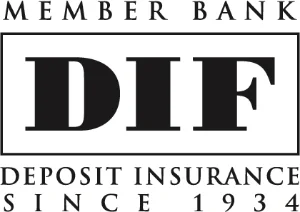A personal finance blogger recently wrote a post encouraging his readers to beware of financial “experts” offering “contrarian advice.”
His point was that there are a lot of people out there trying to make a name for themselves – and, hopefully, get rich – by becoming financial gurus.
The catch is that practical advice isn’t going to set anyone’s career as a guru on fire, let alone generate a lot of clicks and big bucks. Too many give into the temptation and start taking it up a notch to get more clicks. Stunningly, one blogger-influencer told The Wall Street Journal that they weren’t saying their way was “a better way – I’m saying it’s a creative way of doing it.” That kind of thinking could easily lead their readers into trouble. It’s a shame.
People realize what’s going on and many are becoming more skeptical of “must-do” advice presented in contrarian or “creative” ways, especially when it comes to their finances. Practical financial advice is actionable and dependable and that’s what makes the biggest difference for most people.
What makes applying practical financial advice so difficult? Maybe it’s because it doesn’t have the urgency of clickbait. It doesn’t feel “contrarian” or “creative.” But some things are what they are. Achieving Financial Fitness is very much the same as achieving physical fitness. People pretty much know what they need to do. It can take a while for results to show and you have to keep at it. But it’s worth it.
Last November, Reader’s Digest presented a round-up of life improvement ideas. Their Idea #7 was, “Track your spending for a few months. You may be surprised. Once you know where your money is going, you can set goals, create a budget and start saving.”
Forget budgeting! That word may have kept more people from paying attention to their finances than any other word in the English language.
Hardly anybody ever seems to get around to budgeting. But looking at it as “cash management” can make all the difference.
It’s not just changing the words. Cash management is about keeping an eye on where your money is going. For most people, that knowledge is what gets them to start doing things differently in a way budgeting just never did.
One example: People have signed up for all kinds of services and subscriptions they aren’t using. For some reason, it’s very easy for these regular charges to hang around forever. It can become a serious money drain. “But I haven’t really thought about it,” is what they say if you ask.
That’s a sign. If you’re not happy with your financial situation (or even if you are), see if you can start thinking more about your money from a cash management perspective. You may not be pleased with where you are right now. You may have to spend less or earn more to get to where you want to be. And it will help to accept that it will probably take some time to improve your situation.
What matters is being willing to look. Seeking out useful ideas from trustworthy sources can be a jump-start. But one thing is certain – if you won’t think about your money, chances are you’ll never get to where you would rather be.
What’s really interesting? The more you think about your money and making the most of it in a practical way, the faster you will achieve Financial Fitness. In our spend-spend-spend culture, becoming financially secure is definitely a contrarian – and creative! – achievement.


